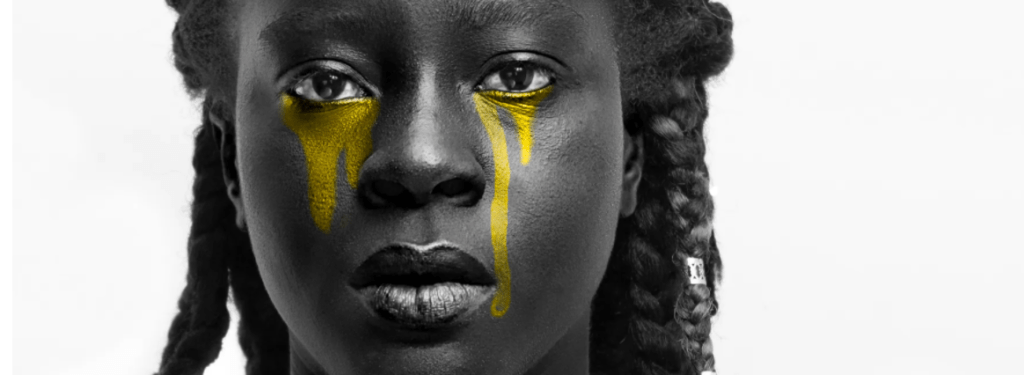Thee Fare Well – Guidelines & Tool Box to deal with loss

Fare thee Well – Guidelines & Tool Box to deal with loss
Back home, in Catalonia, I understood, at a very early age, that death was part of life through my mother and her conscious grieving support group. It had to be honored and accompanied with respect, care and awareness. I understood that dying is as important as giving birth.
I have experienced visiting people before their death, sung their favorite songs, read paragraphs of their treasured books or prayers from their cults, surrounded them with their preferred colors, applied lip balms, and their favorite perfume, brought them their dearest flowers and objects of value- personal anchors as we call them in Psychology.
I understood that in transitional moments, we can interconnect with others, if we reconnect with our own spirituality, moreover, being open-minded to accompany the person with whatever their desires are. It is an act of selfless service, to be next to a person in transition and adapt to their belief system in a respectful manner. It is their right to die surrounded with what gave them life.
Religion and beliefs can separate us, but spirituality unites us. Pierre Teilhard de Chardin a Jesuit Christian Priest (1955) wrote about the difference between religion and spirituality, which, in my opinion, is the zone where we can connect in sacred moments such as the departure.
We might have family members, work colleagues and friends that follow different congregations, from different cultures and religions. Nevertheless, there is only one form of spirituality. It comes from following your inner wise conscious voice and leaves the dogmatic rules aside, to focus on the true needs and deeper aspirations of self and others.
During these last months of the pandemic, we have encountered death more often than usual, in countries detached from their spirituality, together with extraordinarily challenging situations of unavailability and inaccessibility in saying goodbye to their loved ones. This has made this process even harder to digest.
In private consultancy, I have encountered a few clients dealing with grief from the death of grandparents and parents since the pandemic started, coupled with the inability to travel, attend the ceremonies held or be able to be present during their last moments.
At any age and time, death is a difficult phase to encounter. We all have to go through it. Therefore, instead of treating it as a taboo, it should be a subject we receive education about, a topic to be discussed, dealt with, and processed as any other stage and phase we go through in life.
While on top of the topic of being treated as taboo, nowadays, the lack of access to ill people during these times has led to the rise of Risk Grieving in many countries and cultures.
When death happens without a proper period of preparation, a part of us does not fully register the fact. Therefore, writing a letter to the person that is gone is very important. In it, you can write: what has happened, how this has made you feel and how you wish things had happened in an ideal situation without the pandemic.

Creating an altar with the picture of the person, including flowers, an object that reminds us of them, a poem, prayer, book, the written letter enclosed, etc. Creating a physical space for the deceased person, allows us to give it a space within us. Thirty days is a good time to help register it in our mind. In Eastern traditions, they do not use candles 72 hours after the person has died. They are used before and during the process of transition, symbolizing the light to help guide their path to the afterlife and the lighthouse of the ancestors coming to pick them.
In ancient cultures, it is also said that the person that leaves, delivers their talents to their most loved ones and they feel inspired in doing something new they never practiced before, just a few weeks after the person is gone. In Psychology, we can only confirm that practicing and focusing on a new activity helps digest the shock.
My granny would say, “When you have lived in peace, you die in peace”, and she did. When I lost my dear grandmother, I planted 96 (the age at which she died) pink Geraniums (her favorite flower colour) to celebrate her life. I also created hanging mobiles made of beads, shells and stones during her last month in hospital. I gifted these mobiles, in my granny’s name, to everyone that showed interest in them during her last months and weeks of illness. I still believe this helped me pre-grieve her departure.
Life is condensed energy and death is dissolved energy; we are stardust experiencing life. I honor all the ones that died before us. We are their sons and daughters and have to ensure that bidding farewell is as nurtured as its first hello.
A few ways to digest the loss:
- Writing a letter and creating an “altar” to honor the person’s life for a few days.
- Practicing a new hobby that the person used to enjoy, e.g. gardening, knitting, collaging, also helps us register, digest and integrate, as we channel the energy we feel and process these feelings.
- Planting a tree in honor of the person’s life is a beautiful activity to do for a family in nature on a family land.
- Visit the places of origin, the ancestors tracing family trees/ lines, or just venues you used to visit with that person, triggers closure.
- Keeping an object of the loved one with you can help make a bridge and you can hold it whenever you miss them.
Strategies for coping with Risk Grieving during and after COVID-19:
- Risk Grieving: Risk Grieving is a type of grief we have encountered these last few months, where we have been unable to carry out proper ceremonies and felt invaded by rage, anger and deep sadness mixed with guilt. It is an exceptional moment that counseling assistance, expressing the feelings in a journal and sharing your memories, thoughts and feelings on a weekly basis (video calls) to all the family members or friends experiencing the same loss might help ease the process. Sharing, speaking up and exchanging emotions is crucial to the grief process and the journey towards acceptance.
- Plan for future celebrations: Planning for an independent ceremony, if the situation finds us far away, is a very helpful option. It is as good as making plans for a congregational celebration when the situation stabilizes exactly the way the person gone would have wished for.
- Self-care: For the members suffering the loss, eating healthy and practicing self-care is more important than ever before. They can be accompanied by crying, speaking and walking in nature, exercise, dancing, shaking our bodies or tap. It helps digest somatically- through the body as the emotions get released from our subconscious.
How to help a relative or friend that suffered a loss:
Listen actively, showing empathy and interest.
Offer help in concrete matters (food, shopping, chores, etc.).
Stay close to the person, even if it is not through interaction. Make yourself available, in case the person needs anything.
Hold the space in silence, avoid giving advice, just practice being present and being near. It’s enough. The person feels divided between the will to be alone and the need to be accompanied.
If the person belongs to a religious group, communicate and seek for their counsel, as their beliefs will be very similar and you will find the support wanted.
Respect the process of that person (regard, consideration, abstain from interfering).
Don’t take emotional reactions from the person personally; we are supporting- they are in pain and suffering.
Find spaces to recharge your own energy, so that you can continue being present for that person.
Avoid making assumptions and ask what the person needs at that moment.
Engage to remember beautiful memories together.
Engage and share in the ceremony needed preparations for the future celebration.
Engage in a creative activity, the focus helps process emotions.
Help the person reconnect with his/her mission and purpose.
When we are unable to be present or attend ceremonies, especially due to a sudden death, it is advised to do the following:
1) Imagine the person is standing in front of you “as if she/he was there” a strategy used in psychology called “as if”.
2) Imagine a conversation, ask questions and perceive/imagine the answers.
3) Practice the Ho’oponopono Exercise:
- Express your feelings: e.g. I am angry, because you are no longer with me. I am sad, because I miss you.
- Express your forgiveness for something you could not apologise for, to release any guilt left: e.g. Forgive me for…
- Express your gratitude towards something the person did for you. e.g. Thank you for…
- Express your love for the person. e. g. I love you because…




Thanks for this
Beautiful. Very logical and intuitive . The difference between religion and spirituality is very well explained . It is very necessary to do that today .I personally believe in most of the practices suggested to cope with death, so it resonated well with me .